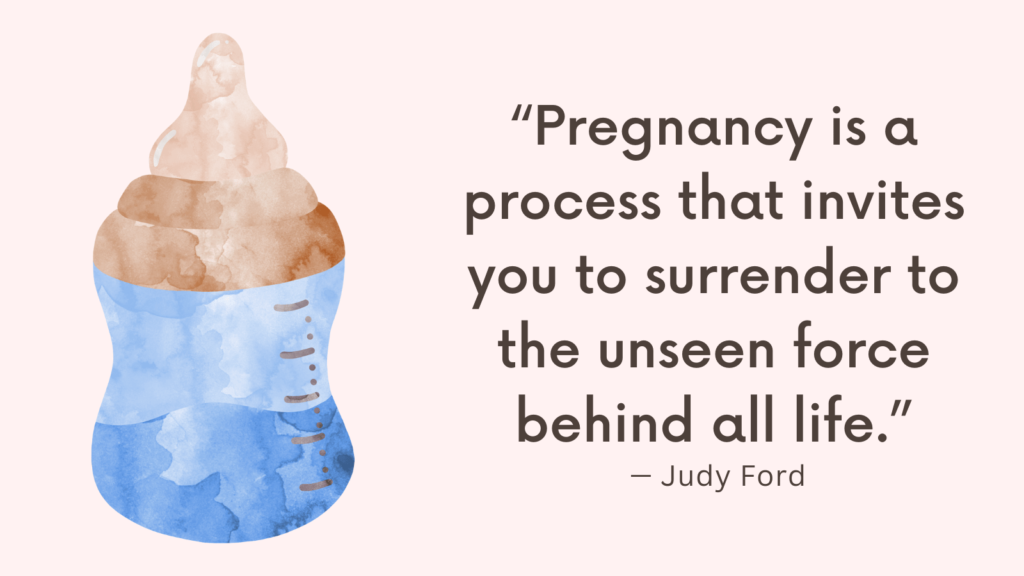Increased appetite, round ligament pain, and an active little kicker inside.
You’re 18 weeks pregnant! You’re almost halfway through your pregnancy, and things are getting exciting! Your baby is growing rapidly, moving more, and becoming more aware of the world inside your womb. If you haven’t felt movement yet, it could happen soon!
Let’s explore your baby’s development, changes in your body, and how to manage symptoms at 18 weeks pregnant.
What’s Happening to Your Baby?
At 18 weeks, your baby is about the size of a sweet potato (13-14 cm or 5.5-6 inches long) and weighs around 200 grams (7 oz). Your little one is becoming stronger, more active, and more responsive to sound and light.
Major Developments This Week:
Baby’s Ears Are Fully Formed! – Your baby can hear sounds inside your body (like your heartbeat and digestion) and may even react to loud noises.
Kicking, Rolling, and Twisting! – Movements are stronger and more coordinated, and many moms start feeling their baby this week!
Bones Are Hardening! – Your baby’s skeleton is developing from soft cartilage into strong bone.
Baby Is Covered in Vernix Caseosa! – This white, creamy layer protects their skin from amniotic fluid.
Facial Features Are More Developed! – Eyebrows, eyelashes, and tiny facial expressions are forming.
Grip Is Strengthening! – Your baby is grabbing the umbilical cord and touching their face.
Reproductive Organs Are Developing! – If you’re having a girl, her uterus and fallopian tubes are in place. If you’re having a boy, his genitals are more noticeable on an ultrasound.
What’s Happening to Your Body?
At 18 weeks pregnant, your belly is growing, your baby is moving, and your body is adapting to pregnancy. Some symptoms may still linger, but many moms feel great in the second trimester.
Common Symptoms at 18 Weeks Pregnant:
Feeling Baby Movements (Quickening)! – Flutters, bubbles, or tiny kicks may start this week.
Growing Baby Bump – Your uterus is the size of a cantaloupe, and your bump may be more noticeable.
Round Ligament Pain – Stretching or pulling pain as your belly expands.
Increased Appetite – You may feel hungrier as your baby’s growth speeds up.
Bloating & Constipation – Hormones slow digestion, which can cause discomfort.
Back Pain – Posture changes and a growing belly may lead to lower back pain.
Nasal Congestion – Higher estrogen levels can make your nose feel stuffy.
Dizziness or Lightheadedness – Your blood volume is increasing, which may cause low blood pressure.
Leg Cramps – Calcium and magnesium imbalances can cause cramps, especially at night.
How to Cope with Week 18 Pregnancy Symptoms
1. Feeling Baby Movements (Quickening)
Movements may feel like tiny flutters, bubbles, or gas.
If you don’t feel anything yet, don’t worry! Many women feel baby movements closer to 20-22 weeks.
Try lying still after eating to notice movements.
2. Handling Round Ligament Pain
Stretch gently or try prenatal yoga to relieve tension.
Change positions slowly to avoid sudden discomfort.
Use a belly band for extra support if needed.
3. Managing Increased Appetite
Eat nutrient-rich foods to support your baby’s growth.
Snack on healthy options like nuts, yogurt, and fruits.
Don’t overeat! Listen to your body’s hunger cues.
4. Preventing Constipation & Bloating
Eat fiber-rich foods like fruits, vegetables, and whole grains.
Drink plenty of water to keep digestion moving.
Stay active – Walking can help relieve bloating.
5. Coping with Nasal Congestion
Use a humidifier to keep the air moist.
Drink plenty of fluids to stay hydrated.
Try saline nasal sprays (pregnancy-safe).
6. Managing Back Pain
Maintain good posture and avoid slouching.
Use a pregnancy pillow for support while sleeping.
Do gentle stretches or prenatal yoga to ease back pain.
7. Reducing Dizziness or Lightheadedness
Stand up slowly to prevent sudden drops in blood pressure.
Eat small, frequent meals to keep blood sugar stable.
Drink plenty of water to prevent dehydration.
8. Preventing Leg Cramps
Stretch your legs before bed to reduce cramping.
Eat calcium and magnesium-rich foods like dairy, bananas, and nuts.
Massage your legs or apply heat if cramps occur.
What Should You Be Doing in Week 18?
Now that you’re almost halfway through pregnancy, here’s what to focus on this week:
1. Schedule Your Anatomy Scan (If You Haven’t Yet)
The 20-week anatomy scan is coming up! This detailed ultrasound checks your baby’s organs and growth.
If you want to find out the gender, this is the best time!
2. Keep Taking Your Prenatal Vitamins
Ensure your vitamin contains 400-800 mcg folic acid for brain and spinal cord development.
A vitamin with DHA & Omega-3s supports baby’s brain growth.
3. Eat a Healthy Pregnancy Diet
Include protein-rich foods like eggs, chicken, and tofu.
Eat calcium-rich foods like yogurt, milk, and cheese.
Stay hydrated – Drink at least 8 glasses of water daily.
4. Start Looking Into Maternity Clothes
Your regular jeans may feel tight, and your baby bump may be growing.
Consider maternity leggings, stretchy pants, or loose dresses.
5. Think About Baby Names!
If you haven’t started yet, make a list of baby names you like!
Discuss with your partner and narrow down your favorites.
6. Plan a Babymoon (If You Want One!)
The second trimester is the best time to travel before baby arrives.
Check with your doctor if you plan to fly or take a trip.
7. Start a Pregnancy Journal or App
Document how you feel each week.
Take weekly bump photos to track your progress.
Final Thoughts
You’re 18 weeks pregnant, and your baby is getting bigger, stronger, and more active! This is an exciting time, especially if you’re starting to feel movement.
Your baby is developing tiny features, reacting to sound, and preparing for big growth ahead. Symptoms like bloating, back pain, and dizziness may still happen, but you’re doing an amazing job!


